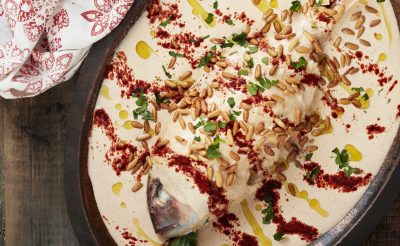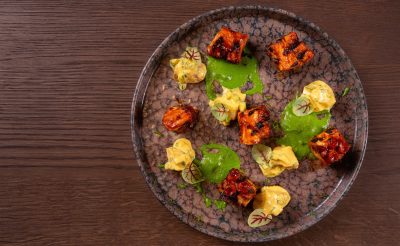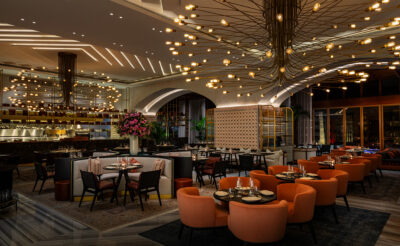Following on from her bestselling Palestine on a Plate, Palestinian-British chef and food writer Joudie Kalla has released her second book, Baladi, which means 'my home, my land, my country' and introduces readers to more of the Middle East’s best-kept secret – Palestinian cuisine. MOJEH.com caught up with Kalla to find out how her upbringing inspired her love of cooking and what makes Palestinian cuisine so special.
How did your upbringing inspire your love of cooking?
My upbringing was fundamental in my love of cooking. Growing up food was always the main subject of family gatherings. Listening to stories of how dishes were made, changed, and made unique by each of my aunties was what excited me the most. You can see the taste buds of each person coming through in their dishes. Family, food, culture and history are a huge part of my life and continue to be through the food that I cook today.
What makes Palestinian cuisine so special?
For me, what makes it so special is the sheer variety of it. It’s all about the flavours, aromas and stories. Palestinian food is influenced by the surrounding areas, geography, family traditions and historical changes, it is such a complex yet specific style of cooking that is familiar all over the Levant. But what I love most is the fact that it’s healthy and delicious.
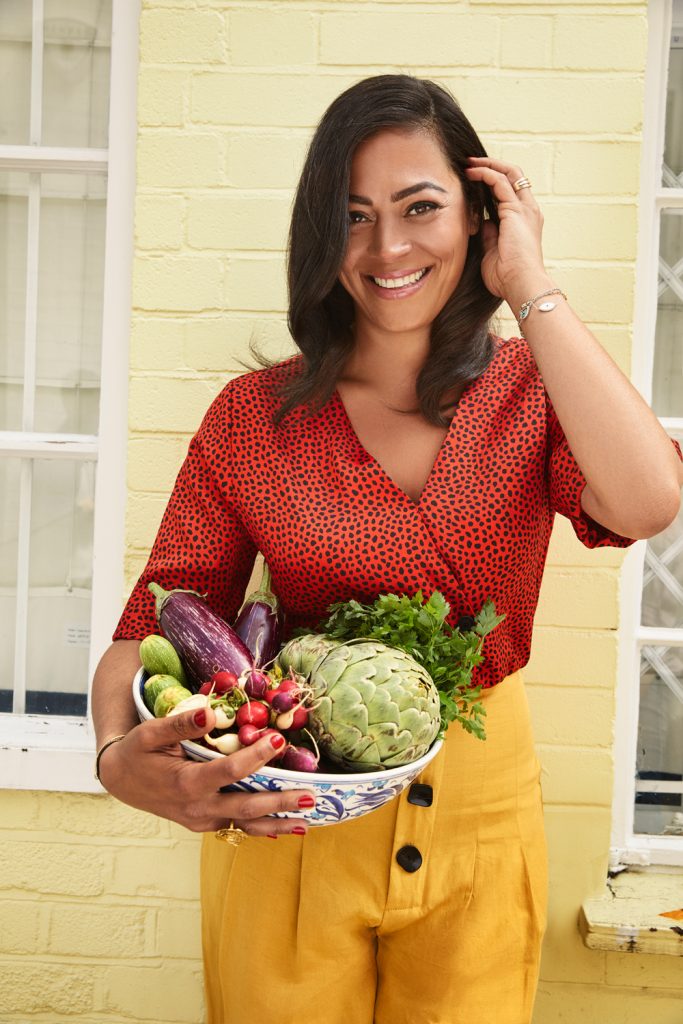
Joudie Kalla © David Reiss
Different regions in Palestine have different ways of cooking certain dishes. How did you choose which method to follow?
My mother comes from the coastal area of Palestine, Yaffa and El-Lyd, and my father is from the North in Safad near the border with Lebanon. They both cook very differently. I didn’t choose which method was correct (because they all are); I just chose the one that was most familiar to me and was most often eaten at home. I spoke with many people about food in Palestine when I was writing my book and experimented with their way of cooking. Each city, town and area has its own style and I think it’s important not to eradicate that but to embrace it.
Why do you think Palestinian food has remained relatively unexplored until recently?
Although we are inundated with Lebanese restaurants, most people simply don’t realise that each country in the Middle East has its own twist on food including different spices, methods and styles to cooking the same dish. The fact that Palestinian food is having its moment in the spotlight is extremely exciting because it’s important for people to be able to differentiate between countries when eating and not put the whole Levant under one umbrella.
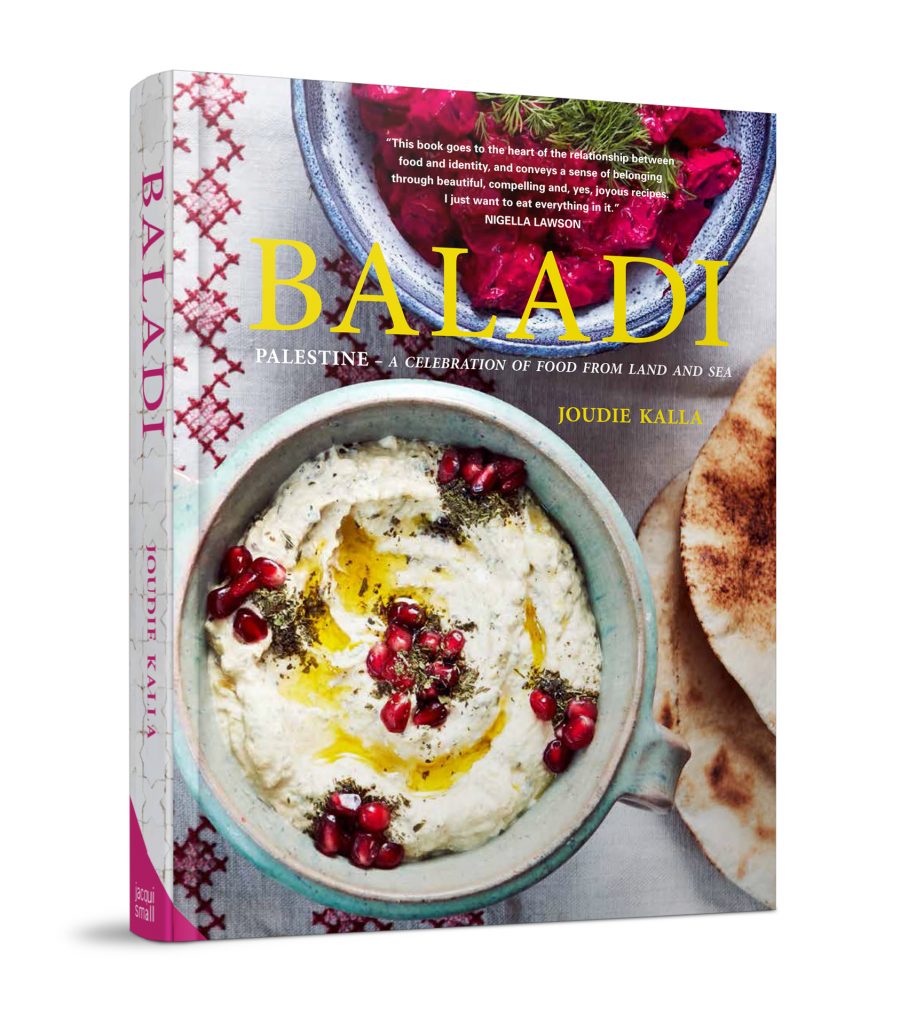
Baladi: Palestine a celebration of food from land and sea by Joudie Kalla, published by Jacqui Small
Are there any Middle Eastern ingredients you particularly like to cook with?
I have a huge list of favourite ingredients, but if I had to choose just a few they would be Palestinian za’atar (a traditional spice blend) from Zaytoun, Palestinian olive oil and tahini. Za’atar is used in many dishes and can be incorporated into breads, salads and dressings or scattered onto fish and meat. Olive oil from Palestine is simply my favourite. We are known for the olive tree and the flavour is unrivalled. Tahini is my all time go-to ingredient. I use it in desserts for ice cream, halaweh (a type of fudge), sauces and also in baking.
What is your favourite Palestinian comfort food?
It would have to be halawet el-jibn, which is a sweet sticky cheese roll drizzled with sugar syrup and stuffed with ashta (cream). Sometimes I eat it straight from the pot before it is even assembled.
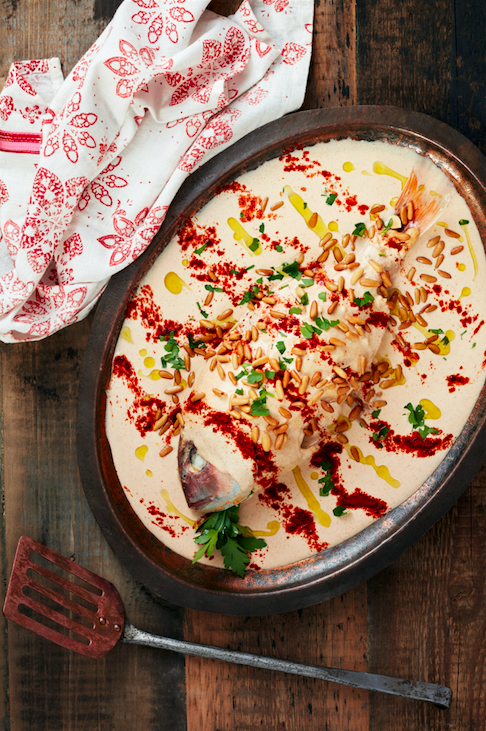
Spicy fish samakeh harrah from the Baladi recipe book © Jamie Orlando Smith
How to create the perfect grazing platter this party season.
